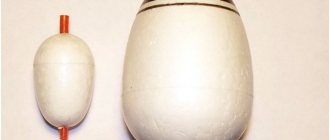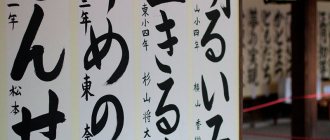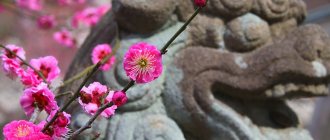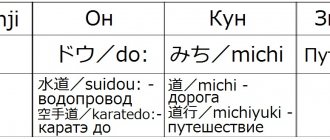This Russian-Japanese phrasebook with pronunciation and transcription includes common words and expressions for everyday communication: standard phrases of greetings, thanks, questions, requests, a set of words for communication in shops, restaurants, hotels, orientation in a new and unfamiliar place and much more.
Typically, English is used for communication in the tourism industry. At the same time, knowing and using common polite phrases that the Japanese phrasebook offers will help establish contact and earn the respect of the local population.
In the Russian-Japanese phrasebook for tourists, pronunciation is given based on transcription. The colon indicates the longitude of the sound. For convenience, you can download the Russian-Japanese phrasebook for free in pdf format.
Greetings
| Good morning | O-hayo: gozaimas |
| Good afternoon | Konnichiwa |
| Good evening | Konbanwa |
| Hello how are you doing? | Konnichiwa, do: des-ka? |
| How are you doing? | Go-kigen ikaga des-ka? |
| How are you? | De anata-wa ikaga des-ka? |
| OK, thank you | Arigato, genki des |
| How are you? | Before: des-ka? |
| Still | Aikawarazu des |
| So-so | Ma: ma des |
| Hello! | I:! |
| Welcome! | Yo: askew! |
| Glad to see you | O-aisite ureshii |
| See you! | Jya: mata |
| Goodbye | Sayo: nara |
| Good night | O yasmi nasai |
| Till tomorrow | Mata Ashita |
| Best wishes | Dewa o-daiji-ni |
| take care of yourself | Deva o-karada-o taisetsu-ni |
| I have to go | Oitoma simas |
Appeals
| Phrase in Russian | Translation | Pronunciation |
| Good morning | o-hayo: gozaimas | |
| Good afternoon | konnitiva | |
| Good evening | konbanwa | |
| Hello how are you doing? | konnichiwa, do: des ka? | |
| How are you doing? | go-kigen ikaga des ka? | |
| How are you? | de anata-wa ikaga des ka? | |
| OK, thank you | arigato, genki des | |
| How are you? | before: des ka? | |
| Still | Aikawarazu des | |
| So-so | ma:ma des | |
| Hello! | I:! | |
| Welcome! | e: askance! | |
| Glad to see you | o-aisite ureshii | |
| See you! | jya:mata | |
| Goodbye | sayo:nara | |
| Good night | o yasmi nasai | |
| Till tomorrow | Mata Ashita | |
| Best wishes. | deva o-daiji-ni | |
| Take care of yourself. | deva o-karada-o taisetsu-ni | |
| I have to go. | Oitoma Simas |
Standard phrases
| Thank you very much | Do: mo arigato: gozaimas |
| Thank you | Taihen arigato: gozaimas |
| My pleasure | Before: itashimashite |
| Do not mention it | O-rei niwa oyobimasen |
| Nothing, don't worry | Nandemo arimasen |
| Thanks for the service | Go-kuro: deshita sama |
| thanks for the invitation | Go-sho: tai arigato: gozaimas |
| Sorry (excuse me), please | Shitsurei (sumimasen) |
| What is your name? | Nan toyu: o-namae des-ka? |
| Tell me please | Chotto sumimasen ga |
| Please pass | O-hairi kudasai |
| Here please | Do: zo kotirae do: zo |
| Let me introduce myself, I | Jikosho: kai sasete itadakimas, watashi-wa |
| Meet me please | Do: zō o-chikazuki-ni natte kudasai |
| Glad to meet you | Hajimemashite |
| Very nice | O-mi-ni kakarete ureshii des |
| What is your first and last name? | O-namae to myo: ji-wa nan-to iimas-ka? |
| My last name is my name | Watakushi-wa sei-wa, namae-wa Mo: simas |
| Excuse me, please | Gomen nasai |
| Excuse me, please | Shitsurei des ga |
| I'm sorry | O-wabi itashimas |
| Thank you for your hospitality | Go-shinsetsu arigato |
| Thank you | Arigato (gozaimas) |
| Please! | Before: dzo |
| Do not mention it | Doitasimaste |
| Congratulations! | Omedit! |
| Thank you for everything! | Iroiro to do: mo arigato |
| Can `t you help me? | Onegai itashimas |
| Sorry to bother you | Was sumimasen desyta |
| Congratulations | Omadeto: gozaimas |
| I want to invite you to Russia | Rosia ni go-sho: tai sitai to omoimas |
| I want to invite you to a restaurant | Resutoran ni go-sho: tai sitai to omoimas |
| Come with us to... | ...ni isshoni ikimasen-ka? |
| Thank you for your help (for your cooperation) | Go-kyo: ryoku arigato: gozaimas |
| thanks for the gift | Presento arigato: gozaimas |
| I am very obliged to you | O-seva ni narimashita |
| Unfortunately I can not | Zannen nagara dekimasen |
| What is this? | Kore wa nan des-ka? |
| Why? | Naze des-ka? |
| Where? | Doko des-ka? |
| Who is this? | Kono hito wa donata des-ka? |
| My name is | Watakushi-wa-to iimas |
| I want to drink | Nodo ga kawakimashita |
| I want to sleep | Nemui des |
| I'm hungry (I'm hungry) | O-naka ga suitimas |
| Please help me | O-tetsudai o-site kudasaru yo: o-negai shimas |
| Can | Dekimas |
| I can not | Dekimasen |
| I can go with you | Anata to isshōni iku koto ga dekimas |
| I can't go with you | Anata to isshōni iku koto ga dekimasen |
| I'm very sorry, but I can't | Zannen des ga dekimasen |
| I'm busy (I don't have time) | Watashi wa isogasi |
| I need to hurry | Isoganakereba narimasen |
| I am late | Okuremas |
| I'm lost | Miti ni majotta |
| sorry for making you wait | O-matase shimashita |
| I don't understand | Wakarimasen |
| I understand | Vacarimas |
| Please come again | Do: zo mo: ichido ashita o-ide-ni natte kudasai |
| make yourself at home | O-raku-ni do: dzo |
| Sorry | Sumimasen |
| It's OK | Give jobu des |
| I | Watashi |
| You(you) | Anata |
| He | Kare |
| She | Kanojo |
| Woman | Josei |
| Man | Dunsay |
| Husband | Shujin |
| Child | Kodomo |
| Son | Musuko |
| Daughter | Musume |
| Big | Ookiy |
| Small | Chisai |
| Hot | Atsui |
| Cold | Samui |
| Hot | Atatakai |
| Cold | Tsumetai |
| Good | Ii |
| Bad | Warui |
| What? | Nan deska? |
| When? | Itsu deska? |
| For what? | Naze? |
| Who? | Dare deska? |
| You will not say | Chotto o-ukagai shitai no des ga |
| May I ask you? | Chotto o-tazune shite mo ii des-ka? |
| Listen | Moshimosi |
| Let's take a photo together | Isshoni shashin-o torimasho |
| I have to ask you | O-negai ga arimas |
| Help me please | Tetsudatte kudasai, tasukete kudasai |
| Call a translator | Tsu: yaku-o yonde kudasai |
| Do you understand Russian (English)? | Rosyago (igirisugo)-ga arimas-ka? |
| I do not understand well | Amari wakarimasen |
| Do you speak Russian? | Rosiago-o hanashimas-ka? |
| Yes, I talk a little/no, I don’t talk | Uh, sukoshi hanashimas/ie, hanashimasen |
| I do not understand you | Anata no itte iru koto ga wakarimasen |
| Please talk slowly | Mo: sukoshi yukkuri itte kudasai |
| Sorry, please repeat again | Shitsurei des ga, mo: ichi-do itte kudasai |
| I don't understand when people talk fast | Hayaku hanasareru to, watashi-wa wakarimasen |
| How would it be in Russian (English?) | Kore-wa roshiago (igirisugo)-de nan-to iimas-ka? |
| Wait a minute | Chotto matte kudasai |
| This is right | Sore-wa mattaku des |
| It is not right | Sore-wa tigaimas |
| Absolutely right | Ossyaru then: ri des |
| I was wrong (I was wrong) | Watashi-wa matigaimasita |
| Really? | Masaka n. e.? |
Japanese degrees of politeness are a rather interesting thing... and ambiguous.
Are you confused by all these - kun, - chan and other investments in subtitles? This is called Japanese politeness. They are about the same as Mister, Mister, Pan, Miss, Madam and Sir. However, for the Japanese they tell much more about relationships between people.
Nominal suffixes in Japanese are suffixes that are added to a name (surname, nickname, profession, etc.) when talking to or about a person. Nominal suffixes play an important role in Japanese communication. They indicate the social status of the interlocutors relative to each other, their attitude towards each other, and the degree of their closeness. By using any nominal suffix, you can insult your interlocutor, or vice versa - express your deepest respect to him.
Honorific. Honorative is a “form of politeness.” A grammatical category that conveys the speaker’s attitude towards the person in question. It is characteristic primarily of the “polite” Japanese language.
Honorifics are gender neutral, but some are used for one gender more than the other. Kun, for example, is more used for men, and chan for women. Honorifica are usually required when addressing someone, but sometimes they need to be discarded altogether. It's quite confusing.
Kanji (漢字). Kanji
Honorifica is usually combined with the polite speech suffixes -masa and desu. If a person does not use Honorifics at all, then this is a clear indicator of rudeness. This style may seem awkward or even arrogant, a sign of a familiar, cold and “distant” relationship.
Withholding deference signifies intimacy with the person you are speaking to. This is done with spouses, younger family members, very close friends, or those of lower status in society. They also omit it when talking about a family member to another person. However, this phenomenon is common among schoolchildren, students, and hard workers (in an environment where unceremoniousness is quite acceptable).
Hiragana and Katakana. Japanese syllabary
Is it possible to completely do without all these suffixes and proper selection? It is possible, but very, very, very undesirable.
Now let’s move on to the classic “gentleman’s” set of the most common suffixes:
San (さん) is the most common badge of honor. It is a title of respect between equals. A neutral polite suffix that corresponds quite closely to addressing people by first name and patronymic in Russian. This is the English equivalent of Mr., Miss. It can also be attached to animals and objects, but such use is considered childish. Usagi-san roughly translates to Mr. Rabbit. It can also be used to refer to someone who works in a particular place. honya-san ("bookstore" + san) translates to "bookseller".
However, it should be taken into account that in women’s speech this suffix loses its honorative meaning and is used for almost all names. That is, Japanese women address everyone with “-san,” even the closest people (excluding children). This explains the fact that in Japanese films, as well as in anime, women say “-san” even to their husbands. In this case, the suffix does not mean addressing “you”. However, modern young women and girls are less formal in their speech and use “-san” mainly as a neutral-polite suffix.
Tian (ちゃん) is an approximate analogue of diminutive suffixes in Russian. This suffix shows that the speaker finds the person cute. Using chan with the boss's name is considered rude and condescending. Used mainly by young children, close friends (teenagers), adults in relation to children, older people in relation to younger ones with whom close relationships develop.
It is not used in a purely male society; moreover, a man may regard such an address to himself as an insult (unless his beloved girl calls him that). It can also be attached to animals. Young women can use it to identify themselves in order to appear cute and childish. Among otaku, the suffix -tan is also often used in relation to all sorts of mascots and manifestations of moe anthropomorphism (for example: Wikipe-tan, OS-tan, etc.) as a “warmer” version of the suffix -chan.
7 Different Ways to Say "Father" in Japanese
Kun (くん) is a warmer polite suffix than -san. An approximate analogue of the address “comrade” or “friend”. Used by people of senior status to refer to people of junior status or by someone when referring to male children or teenagers. Women may also use this term to refer to a guy they are emotionally attached to or have known for a long time.
It can be used in relation to girls when the suffix “-chan” is inappropriate for some reason (for example, a male teacher to a female student or a girl to a girl in a somewhat official but humorous manner). Kun is not exclusive to men, but is primarily used to refer to men.
Sama (さま) is much more respectful than san. A suffix that shows the greatest possible respect and deference. An approximate analogue of the address “Mr”, “Honourable”. It is used when addressing a priest to deities, a devoted servant to a master, a girl to a lover, as well as in the text of official messages.
This term is used to refer to people who have a much higher status than yourself, clients, or those you greatly admire. When used to refer to oneself, it can appear highly arrogant or self-deprecating (sarcasm), depending on the context. In colloquial speech it is used quite rarely and only when addressing persons of lower social status to higher ones or very respectful address of younger people to elders.
Aniki (兄贴) - verb. "Noble Elder Brother") . Slang honorific, analogue of the Russian "bro".
Senpai (せんぱい) - lit. "Colleague who started early" . Appeal to an older, more experienced person. Also used for high school classmates. More often used as a separate independent word, rather than as a suffix.
Kōhai (こうはい) - verb. “Colleague who started later” , an appeal to a younger person. So, senpai can attach this to the junior's name. This is not usually used.
Sensei (せんせい) - verb. "an earlier being" . "Teacher". Used to refer to teachers and lecturers themselves, as well as doctors and politicians. This refers to someone who has achieved great mastery in something. Like "senpai", often used as a separate word.
Senshu - “Sportsman.” Used to refer to famous athletes.
Si (し) - used in formal writing (documents, scientific papers) and, sometimes, in very formal speech towards strangers (for example, in the news). When a person is mentioned for the first time in a conversation, his name and the suffix si are indicated. Further in the conversation, instead of the full name, only si is used.
Ue (上) literally means "Elder". Shows great respect. It is rarely used, but appears in some phrases such as chichi-ue and haha-ue. Reverent words for father and mother. Or, as they say about the nameless buyer, ue-sama.
Gumi - “Team, group, party.” "Kenshin-gumi" - "Team Kenshin".
Dono. Used (or rather, used to be used) to address samurai to each other. Used in official documents (for example: letters, diplomas, certificates, criminal cases) after the name of the recipient, in business correspondence when indicating the addressee after the name of the company or name. In the army when addressing an officer.
Sometimes the suffix “-dono” is applied to a person whom you would not like to call “-san” because he is inferior to you and you are going to do something unpleasant to him (for example, fire him). These are not all cases of using “dono”
In addition to nominal suffixes, Japan also uses many different ways to address each other and refer to themselves using personal pronouns. The choice of pronoun is determined by the social laws already mentioned above.
Phew. It is quite difficult to follow all these rules. Japan is a very stratified society. These suffixes help to clearly understand the status and opinions of others. Of course, the water is a little cloudy. The senpai-kohai relationship may vary depending on the context for different clubs or organizations, depending on how long one or the other has been with the organization.
Honorifics may be a clue to how characters are related to each other in the anime.
Bullying of students is rampant in Japanese schools. 16+
Views: 2,675
Share link:
- Tweet
- Share posts on Tumblr
- Telegram
- More
- by email
- Seal
Liked this:
Like
Similar
Railway station
| Where can I find out the train schedule? | Ressha no jikokuhyo: -wa doko desho: ka? |
| Excuse me, where is the information desk? | Sumimasen ga, annaisho-wa doko des-ka? |
| Is there a train connection to the city from here? | Koko-kara -made tetsudo: -ga tsujite imas-ka? |
| How many hours (days) does the train take to the city? | Si-made kisha-de nan-jikan-gurai (nan-niti-gurai) des-ka? |
| From which platform does the train depart? | -yuki-wa namban-ho:-mu des-ka? |
| Does this train (this electric train) stop at? | Kono ressha (densha)-wa-ni teishya-shimas-ka? |
| Does this train go to the city? | Kono kisha-wa Si-e ikimas-ka? |
| This train doesn't go any further | Kono ressha-wa Eki-yori saki-e-wa ikimasen |
| There is no direct connection there. You will have to change planes. | Asoko-e-wa chokutsu:-wa arimasen kara, norikaenakereba Narimasen |
| What time is the next train until? | Yuki no tsugi no ressha-wa nan-ji des-ka |
| Excuse me, how do I get to the train station? | Totto o-tazune-shimas ga, eki-e-wa (teishaba-e-wa) do: ittara ii desho: ka? |
| Tell me, where is the ticket office? | Kippu-uriba-wa doko des-ka? |
| Where can I buy a ticket to the city? | Shi-made-no kisha-no kippu-wa doko-de kattara ii, but desho: ka? |
| How much does the ticket cost? | Kippu-wa ikura des-ka? |
| Can I return the ticket and get my money back? | Kippu no haraimodoshi-o site itadakemas-ka? |
| Please give me the lowest seat | Sita no shindai-o kudasaru yo: ni o-negai shimas |
| What carriage is this? | Kore-wa nan-go: xia deska? |
| This place is free? | Kono seki-wa aite imas-ka? |
| No, it's busy | Iie, fusagatte imas |
| Sorry, this is my place | Shitsurei des ga, soko-wa watakushi no seki des |
| Excuse me, what station is this? | Sumimasen ga, koko-wa nani eki des-ka? |
| Will this train arrive on time? | Kono kisha-wa jikan to ori-ni tsukima-mu-ka? |
| How many minutes is this train late? | Kono kisha-wa nampun okura des-ka? |
| Where can I buy a plane ticket to? | Yuki no hiko: ki no kippu-wa doko-de kattara ii, but desho: ka? |
| How much does a plane ticket cost to? | Yuki no hiko: ki no kippu-wa o-ikura des-ka? |
| How many hours is the flight to? | -made nanjikan kakarimas-ka? |
| Where is ticket registration done? | Kippu no chiekku-wa doko-de yatte imas-ka? |
| How much hand luggage can I take with me? | Tenimotsu-wa donogurai keiko:-dekimas-ka? |
| How many kilograms of luggage are you allowed to carry for free? | Ju: ryo:-seigen-wa nan-kiro-made des-ka? |
| Luggage weight exceeds the norm | Nimotsu-no ju: ryo:-ga seigen-o: ba:-site imas |
| Will the plane take off exactly on schedule? | Hiko: ki-wa yotei-do: ri shuppatsu shima-ka? |
| Flight delayed due to bad weather | Akutenko: -no tame shuppatsu-ga okurete imas |
| The plane has just been boarded | Tadaima to: jo-kaishi-no ana-unsu-ga arimashita |
| Airport terminal/airfield | Ku: ko:-ta: minaru/hiko: jo: |
| Railway station | Eki |
| Waiting hall | Matiaishitsu |
| Port | Minato |
| Marina | Futo: |
Passport control
| Fill out the entry (exit) form | Nu: koku (shukkoku) ka: do-o kinyu: si-te kudasai |
| Show your passport | Pasupo: to-o haiken shimas |
| Please, here is my passport | Do: zō, watashi no pasupo: to des |
| I'm a tourist | Watakushi-wa kanko: des |
| I came on business | Shoyo: de kimashita |
| Customs inspection of baggage | Zeikan tenimotsu kensa |
| Please provide your customs declaration | Zeikan shinkokusho-o misete kudasai |
| I have nothing to write down in the declaration | Zeikan-ni Shinkoku Surumono-wa Arimasen |
| This is my baggage | Kore-ga watakushi no nimotsu des |
| Do you have any prohibited items? | Kinseihin-wa arimasen n. e.? |
| This suitcase and this bag are mine | Watashi-no-wa kono toranku to baggu des |
| Please open (close) your suitcase | Kono toranku-o akete (shimate) kudasai |
| These are my personal things | Sore-wa watashi-ga jibun-de tsukau mono des |
| What is your currency? | Do: yu: gaika-o-mochi des-ka? |
| Here is my claim tag | Kore-ga tenimotsu uketori bango: des |
At customs
| Phrase in Russian | Translation | Pronunciation |
| Fill out the entry (exit) form. | nyu:koku (shukkoku) ka:do-o kinyu: si-te kudasai | |
| Show your passport. | pasupo:too haiken shimas | |
| Please, here is my passport. | do:zo, watashi no pasupo:to des | |
| I am a tourist. | watakushi-wa kanko: des | |
| I came on trade business. | Shoyo: de kimashita | |
| Customs inspection of luggage. | zeikan tenimotsu kensa | |
| Please present your customs declaration. | zeikan shinkokusho-o misete kudasai | |
| I have nothing to write down in the declaration. | Zeikan-ni Shinkoku Surumono-wa Arimasen | |
| This is my baggage. | kore-ga watakushi no nimotsu des | |
| Do you have any prohibited items? | kinseihin-wa arimasen ne? | |
| This suitcase and this bag are mine. | watashi-no-wa kono toranku to baggu des | |
| Please open (close) your suitcase | kono toranku-o akete (shimate) kudasai | |
| These are my personal things. | sore-wa watashi-ga jibun-de tsukau mono des | |
| What is your currency? | do:yu: gaika-o o-mochi des ka? | |
| Here is my claim tag. | kore-ga tenimotsu uketori bango: des |
Orientation in the city
| Where is the hotel? | Hoteru wa doko ni arimas-ka? |
| Where is the bank located? | Ginko: wa doko ni arimas-ka? |
| How to get to the hotel? | Hoteru made wa do: ittara ii des-ka? |
| Where can I buy a phone card? | Terekhon-ka: do-o doko de utteimas-ka? |
| Where is the post office? | Yu: Binkyoku wa doko des-ka? |
| What time do we meet? | Nan-ji ni matiawasesima-ka? |
| Where shall we meet? | Doko de matiavasesimas-ka? |
| Is this a street? | Kore-wa To: ri des-ka? |
| House number Here? | Kono hen wa Banti des-ka? |
| What kind of building is this? | Kore-wa do: yu: tatemono des-ka? |
| Where I am? | Koko-wa doko des-ka? |
| I'm lost | Watashi-wa michi-ni mayota, but des ga |
| Tell me how to get to the hotel? | Chotto sumimasen ga, hoteru-e wa do: ittara ii desho: ka? |
| I need to go back to the hotel | Watashi-wa hoteru -ni kaeritai, but des ga |
| This is the next street | Sore-wa konotsugi-no to: ri des |
| How to get to the street? | To: ri-e wa do: ittara ii desho: ka? |
| Walk straight down this street | Kono to: ri-o massugu itte kudasai |
| At the intersection (at the traffic light/on the corner) turn (right/left) | Kohaten (shingo:/kado)-o (migi-e/hidari-e) magatte kudasai |
| It is far from here? | Koko kara to: and des-ka? |
| Yes, far away | Uh, then: and des |
| No, not far | Iie, then: ku arimasen |
| Can you walk there? | Aruite ikemas-ka? |
| This road? | Sono michi des n. e.? |
| You're going to the wrong place | Miti-ga tigatte imas |
| I would like to get to the station, but I don’t know the way | Eki-ni iki-tai, no des ga, michi-ga wakarimasen |
| Could you draw a plan for me? | Chotto, chizu-o kaite kudasa-imasen-ka? |
| Will you walk me to the metro station? | Chikatetsu no eki made tsure-te itte kudasaimasen-ka? |
| Is it possible to get there by metro? | Soko-e chikatetsu-de ikemas-ka? |
| Yes, you can | Uh, ikemas |
| What transport can you use to get there? | -e va donna norimono de ikemas-ka? |
| Where is the post office nearby? | Yu: Binkyoku-wa doko des-ka? |
| Where can I call from? | Denwa-o sitai, but des ga, doko-kara kakerare-mas-ka? |
Transport
| Call a taxi | Takushi-o yonde kudasai |
| I want to go to | Ni Ikitai des |
| I need to hurry | Isoganakereba narimasen |
| I am late | Okuremas |
| What type of transport is most convenient to get to the city? | Machi-e iku niva donna ko: tsu: kikan-ga benri desho: ka? |
| When does the bus leave for the city? | Mati-e iku basu-wa itsu demas-ka? |
| How much does a bus ticket to the city cost? | Mati-made-no basu-no kip-pu-wa ikura des-ka? |
| What is the approximate cost for a taxi to the city? | Machi-made takushi: dai-wa ikura gurai kakarimas-ka? |
| Where is the taxi stand? | Takushi: but noriba-wa doko des-ka? |
| Taxi rank - in front of the airport building | Takushi: no noriba-wa ku: ko: biru no mae des |
| To me in the center | Chu: singai-made |
| Please take it to this address | Kono ju: sho-made, kudasai |
| How much do I have to pay? | Ikura des-ka |
| Boarding pass | To: deyo: ken |
| Money | O-kane |
| How many stops will there be? | -wa, ikutsu me, but teiryushjo des-ka? |
| What's the next stop? | Tsugi-wa, doko des-ka? |
| Can this bus take you to the city center? | Kono basu-va, tosin-o to: Rimas-ka? |
| Please notify me when there is a stop | Tei-re: zen-ni tsuitara o-shiete kudasai |
| How long does it take by metro (bus) from here to? | Koko kara Ma-de wa chikatetsu (basu)-de nampun gurai kakarimas-ka? |
| It's a twenty minute drive | Niju: pun gurai kakarimas |
| How much does a ticket cost to | Made no kippu-wa, ikura des-ka? |
| One ticket to | Made no kippu o itimai kudasai |
| I want to take a taxi Where is the taxi stand? | Takushi: - o hiroi tai, but des ga, noriba-wa doko des-ka? |
| Stop | Tomete kudasai |
Hotel
| Is there a hotel nearby? | Kono hen-ni hoteru-ga arimasen-ka? |
| I want to stay in a hotel near the station | Eki no chikaku-ni hoteru-o toritai, but des ga |
| What is the name of this hotel? | Sore-wa nan toyu: hoteru des-ka? |
| I would like to stay at your hotel | Kotira no hoteru ni tomete itadakitai, but des ga |
| Do you have any available rooms? | Aita heya-ga arimas-ka |
| I need a room for one | Hitorbeya-ga hoshii no desga |
| How much does a room cost per night? | Kono hoteru no heyadai-wa o-ikura des-ka? |
| Could you give us two single rooms? | Singuru hutahey o-negai dekinai desho: ka? |
| How much does a double room cost? | Futaribey-wa ikura des-ka? |
| I need a room with a bath | Basutsuki no heya ga hoshii no des ga |
| Fill out this form for visitors | Kono e: shi-ni go-kinyu: kudasai |
| What floor is our room on? | Watashitati-no heya-wa nangai des-ka? |
| This number suits me | Kono heya-de kekko: des |
| Is there a better (cheaper) room? | Motto she (yasui) heya-wa arimasyon-ka? |
| What room does he live in? | -san-wa navgohitsu desho: ka? |
| I would like to pay for a room tonight | Watashi-wa komban-no uchi-ni shiharai-o sumasetai, but des ga |
| I'll leave early tomorrow morning | Asu-wa hayaku tachimas |
| I want to leave my suitcase in the storage room until the evening | Yu: gata-made to-ranku-o tenimotsu ichiji azukarijo-ni azuketai, no des ga |
| What does this item mean in the bill? | Kanjo: - but kono komoku-wa nan des-ka? |
| This is a stay tax | Sore-wa taizaizei des |
| Can I pay in dollars? | Doru-de shiharaemas-ka? |
| I handed over the key to the maid | Ki:-wa ru: mu-me: do-ni watashimasita |
| Administrator on duty | Furonto |
| Room/room | Heya/kyakushitsu |
| Bill/tip | Kanjo/tippu |
| Key | Ki: Kagi |
Greetings for daily use
おはようございます ohayo:gozaimasu Good morning! A formal way to greet someone in the morning. You can use this greeting with colleagues, strangers or superiors. With friends and family, it is most often shortened to the form: おはよう! (ohai: morning!).
こんにちは!konnitiva hello! (or good afternoon)
This is a fairly formal greeting and not the way you greet friends and family. Used for strangers or in formal situations. But this is also the most common greeting. In written form it may appear as こんにちわ konnitiva. The meaning will not change, but still the first option is more correct.
今晩は!(こんばんは) kombanwa Good evening!
This is a formal greeting used in the evening.
お休みなさい!oyasuminasai Good night! When you wish good night to someone you are close to, you can shorten this saying by saying: おやすみ (oyasumi: night!)
良い天気ですね!iitenki desune! Good weather! いい (ii) means good and 天気 (tenki) means weather. So you can change い い to any other adjective that suits the day. This greeting is familiar to the Japanese.
元気ですか。Genkidesuka How are you? (How are you?) 元気 means “health” in Japanese, so you are asking if someone is healthy.
Greeting your friends and family with this phrase every time you see them is a little strange. And it is awkward to use the expression when addressing strangers (at the same time, strangers often nod and say nothing). This phrase is actually only used when enough time has passed since you have seen the person. This expression can also mean a wish for good luck. You can answer this phrase in different ways. For example, はい、元気です。Hai, genkidesu. 大丈夫です。Daijobudesu, if everything is fine, and vice versa いいえ、ちょっと悪いです。Iie, tottovaruidesu. No, not very good. (I'm sick, etc.)
久しぶり hisashiburi Long time no see! If you haven't seen someone for a week or more, you will hear the following phrase: 久しぶり! And it is logical to continue this statement with the question: 元気ですか。 じゃあ、また! Jia:, mata See you later! If, for example, you are about to leave work and say goodbye to your superiors, then use the word: さようなら sayo:nara. If you are in an informal setting, for example, about to say goodbye to friends, then じゃあ、また is a great way to say “see you later!” You can also use では、また deva, mata, which is a little more polite. じゃあ ね jia:ne - see you and じゃ、また明日 ね jia, mata asitane - see you tomorrow, these are also short friendly phrases for parting. ただいまtadaima I'm home! When someone returns home, this person says this phrase. And in response he hears: おかえりなさい!okaerinasai, which means: welcome back! You may also hear these phrases from colleagues at work.
行ってきますittekimasu I'm gone! This phrase is said to family, friends or colleagues when they say that
are about to leave. And in response they hear: いってらっしゃい itterassy Be careful! (Literally translated: go away and come back).
Emergencies
| I have a headache | Atama ga itai |
| I feel bad | Kibun-ga waruy, but des ga |
| I caught a cold | Kaze-o Hiita |
| I need medicine | Kusuri ga hoshii |
| Help! | Taskatee! |
| Fire! | Kaji! |
| Stop! | Tomate! |
| Dangerous | Abunai |
| Call the doctor! | Looking for oyonde kudasai |
| Call the police! | Keisatsu o yonde kudasai! |
| Call an ambulance | Kyukyusha o yonde kudasai! |
Dates and times
| Monday | Getsuyo: bi |
| Tuesday | Kayo: bi |
| Wednesday | Suiyo: bi |
| Thursday | Mokuyo: bi |
| Friday | Kinyo: bi |
| Saturday | Doyo: bi |
| Sunday | Nichiyo: bi |
| Today | Kyo |
| Tomorrow | Asita |
| Yesterday | Movie |
| Early | Hayai |
| Late | wasps |
| Soon | Sugu |
| This morning | Kesa |
| Today | Kyo: but gogo |
| Tonight | Konban |
| This year | Kotoshi |
| Next year | Ryan |
| Last year | Kyo: nen |
| At 6 o'clock in the evening | Roku-ji ni |
| At 10 am | Asa ju-ji ni |
| What time is it now? | Nadzi deska? |
| Spring | Haru |
| Winter | Fuyu |
| Summer | Natsu |
| Autumn | Aki |
| January | Ichigatsu |
| February | Nigatsu |
| March | Sangatsu |
| April | Shigatsu |
| May | Gogatsu |
| June | Rokugatsu |
| July | Shichigatsu |
| August | Hachigatsu |
| September | Kugatsu |
| October | Ju: gatsu |
| November | Zkkitigatsu |
| December | Jugnigatsu |
Purchases
| How much does it cost? | Kore wa o-ikura des-ka? |
| Can I pay by credit card? | Kureditto-ka: do de haratte mo ii des-ka? |
| Why? What for)? | Nan-no tame des-ka? |
| I want to change money | O-kane-o ryo: gae sitai des |
| How do I get to the market? | Ichiba-e-wa do: ittara ii, but desho: ka? |
| Exchange this for yen please | Kore o en ni kaete kudasai |
| How many? | Ikutsu (dono gurai) |
| I'd like to exchange these traveler's checks for cash | Kono traberazu chekku o genkin ni shieldai des |
| Where can I buy? | Wa doko de kaemaska? |
| You have? | Arimaska? |
| Show me this please | Sore o misete kudasai |
| Can I try this on? | Kite mite mo ii deska? |
| I will take it | Kore o kudasai |
| Women's clothing | Fujin fuku |
| Men's clothing | Shinshi fuku |
| Electrical goods | Kateiyo: denki kigu |
| Souvenirs | Omiyage |
| Perfumery | Ko: suirui |
| Accessories | Akusesari |
| Products | Shokuryo: hin |
| Please tell me where the shopping center (quarter) is located? | Sumimasen ga, sho: tengai-wa doko des-ka? |
| I need to buy milk and bread. Is there a grocery store nearby? | Pan to po: nu: -o kaitai, no des ga, kono hen-ni shokuryo: hinten-ga arimasen-ka |
| How much do I charge for everything? | Dzembu-de ikura-ni naru, but des-ka? |
| Where to pay? | Shiharai-wa doko des-ka? |
| Pay money to the cashier | Reji-ni o-kane-o haratte kudasai |
| Please give me a check | Tekku-o-negai simas |
| Can I try on a suit (jacket/coat/dress)? | Sebiro (uwagi/gai-to:/ doresu)-o kite mite ii deska? |
| Can I try on pants (skirt/shoes)? | Jubon (bitch: to/kutsu)-o haite mite ii des-ka? |
| I want to see the camera (video camera) | Kamera-o mitai, but des ga |
In the shop
| Phrase in Russian | Translation | Pronunciation |
| How much does it cost? | Kore wa o-ikura des ka? | |
| Can I pay by credit card? | Kureditto ka:do de haratte mo ii des ka? | |
| Why? What for)? | Nan no tame des ka? | |
| I want to change money | O-kane-o ryo:gae shitai des | |
| How do I get to the market? | itiba-e-wa do: ittara ii no desho: ka? | |
| Exchange this for yen please | Kore o en ni kaete kudasai | |
| How many? | ikutsu (dono gurai) | |
| I'd like to exchange these traveler's checks for cash | Kono traberazu chekku o genkin ni shieldai des | |
| Where can I buy…? | ... wa doko de kaemaska? | |
| You have …? | ...arimasca? | |
| Show me this please | Sore o misete kudasai | |
| Can I try this on? | Kite mite mo ii deska? | |
| I will take it | Kore o kudasai | |
| women's clothing | fujin fuku | |
| men's clothing | shinshi fuku | |
| electrical goods | kateiyo: denki kigu | |
| souvenirs | omiyage | |
| perfumery | ko: suirui | |
| accessories | akusesari | |
| products | sekuryo: hin | |
| Please tell me where the shopping center (quarter) is located? | sumimasen ga, sho:tengai-wa doko des ka? | |
| I need to buy milk and bread. Is there a grocery store nearby? | pan to po:nu:-o kaitai no des ga, kono hen-ni sekuryo:hinten-ga arimasen ka | |
| How much do I charge for everything? | zembu-de ikura-ni naru no des ka? | |
| Where to pay? | shiharai-wa doko des ka? | |
| Pay the money to the cashier. | reji-ni o-kane-o haratte kudasai | |
| Please give me the check. | tekku-o o-negai shimas | |
| Can I try on a suit (jacket/coat/dress)? | sebiro (uwagi/gai-to:/ doresu)-o kite mite ii deska? | |
| Can I try on pants (skirt/shoes)? | zubon (bitch:to/kutsu)-o haite mite ii des ka? | |
| I want to see the camera (video camera). | camera-o mitai no des ga |
Restaurant
| Waiter! | Chotto, sumimasen |
| Menu, please | Menu: kudasai |
| What would you recommend? | O susume wa nandeska? |
| How do you eat this? | Kore o do: yatte tabemaska? |
| Please (order) | Oh kudasai |
| Thank you, everything was very tasty | Gochiso: Dashita sama |
| Food | Tabemono |
| Drink | Nomimono |
| Japanese food | Vashcheku |
| Western dishes | Yo: cheek |
| Beef | Gyu: nick |
| Pork | Butaniku |
| Chicken | Toriniku |
| Fish | Sakana |
| Potato | Pote: then |
| Rice | Gohan |
| Bread | Pan |
| Salad | Sarada |
| Soup | Su: pu |
| Vegetables | Yasai |
| Fruits | Kudamono |
| Dessert | Deza: then |
| Salt | Shchio |
| Sugar | Sato |
| Pepper | Pe: pa |
| Soy sauce | Shyoyu |
| Coffee(hot) | Hotto ko: hee |
| Iced coffee) | Aisu ko: hee |
| Black tea | Ko:cha |
| Green tea | A: cha |
| Mineral water | Mineraru uo: ta |
| Cola | Co: ra |
| Juice | Ju:su |
| Milk | Gyu: nude |
| Whiskey | Whiskey |
| Vodka | Bodka |
| Red wine) | Akawain |
| Wine (white) | Schirowain |
| Rice wine | Sake |
| Beer | Bi:ru |
| Let's have lunch together | Chu: shoku-o go-isshoni ikaga des-ka? |
| Let's have breakfast together | Cho: shoku-o go-isshoni ikaga des-ka? |
| Let's have dinner together | Yu: shoku-o go-isshoni ikaga des-ka? |
| I'm hungry | Watashi-wa o-naka-ga sukimashita |
| What will you order? | Nani-ni itashimas-ka? |
| Please give me a vegetable salad | Yasai-sarada-o-negai shimas |
| Give me some soup (broth) please | Su: pu-o (consome-o) kudasai |
| Please bring chicken with potatoes (with rice) | Chikin-ni pote-to (raisu-no) Moriawase-o tsukete o-negai shimas |
| Please give me the bill | Kanjo:-o-negai shimas |
| I'd like some coffee and scrambled eggs, please. | Ko: hi: to tamago no medamayaki-o-negai shimas |
| I'll take tea with lemon and a sandwich | Watashi-wa remon-chi: to sandoitti-ni simas |
| I'll drink beer | Bi: ru-o itadakimasho: |
| Thanks, I don't drink | Do: mo arigato, watakushi-wa nomasen |
| Fork | Fo-ku |
| Spoon/teaspoon | Supu: n/cha-supu: n |
| Knife | Naifa |
| Plate | Sarah |
Numbers and numbers
| 0 | Zero (rei) | 20 | Niju: |
| 1 | Ichi hitotsu | 30 | San-ju: |
| 2 | No futatsu | 40 | Si-ju: (yon-ju:) |
| 3 | San mizzu(mitsu) | 50 | Go-ju: |
| 4 | Si yotsu(yotsu) | 60 | Roku-ju: |
| 5 | Go itsutsu | 70 | Shichi-ju: (nana-ju:) |
| 6 | Roku mutsu (mutsu) | 80 | Hachi-ju: |
| 7 | City nanatsu | 90 | Kyu:-ju: (ku-ju:) |
| 8 | Hachi yatsu (yatsu) | 100 | Hyaku |
| 9 | Ku (kyu:)kokonotsu | 200 | Nihyaku |
| 10 | Ju: then: | 300 | Sambyaku |
| 11 | Ju:-iti | 400 | Yonhyaku |
| 12 | Ju: no | 500 | Gohyaku |
| 13 | Ju:-san | 600 | Roppyaku |
| 14 | Ju:-si (ju:-yon) | 700 | Nanahyaku |
| 15 | Ju:-go | 800 | Happyaku |
| 16 | Ju:-roku | 900 | Kyu: hyaku |
| 17 | Ju:-city (ju:-nana) | 1000 | Sen |
| 18 | Ju:-hachi | 10000 | Hyakuman |
| 19 | Ju:-ku (ju:-kyu) | 1000000 | Itiman |
We hope that the Japanese phrasebook posted on the site will be useful during your trip to Japan - in solving household, transport and other common issues.
Numerous Japanese media reported a collision between Russian and Japanese ships in the Sea of Okhotsk early in the morning of May 26 at about 08.20 local time.
The Japanese state broadcaster NHK was one of the first to report the incident. This was followed by reports in Tokyo Shimbun, Nihon Keizai Shimbun, Hokkaido Shimbun, Yahoo News Japan, Kyodo and Jiji news agencies.
According to NHK, the Russian transport vessel "Amur" (home port of Nevelsk, displacement 662 tons) collided with the fishing vessel "Dai-hachi-Hokko-maru" (catching hairy crab, displacement 9.7 tons, home port of the Japanese city of Mombetsu, Hokkaido ) 23 kilometers off the coast of Hokkaido. The exact area of responsibility of the collision point has not yet been established.
The Cupid hit the Japanese crab fisher in the side, causing it to capsize. According to NHK, Russian sailors pulled all five crew members of the Japanese crab fisher out of the sea. Two of them are alive, including the captain. Three Japanese fishermen drowned in the water. They were taken by a Japanese coast guard vessel to a hospital in Mombetsu, where they were pronounced dead.
Yahoo News Japan 09/24/2020 Newsweek 03/10/2021 Shukan Gendai 02/27/2021
The ship "Amur" and 23 members of its crew are also in Mombetsu, where the circumstances of the incident are being established. No one from the Amur team was injured.
According to the maritime services of Russia and Japan, on the morning of May 26 in the indicated water area there was moderate sea roughness and quite heavy fog. It is possible that weather conditions could have caused the accident.
According to the Marin Traffic website, the Amur vessel left the port of Nevelsk at 01.00 on May 26 and was heading south, heading to the island of Hokkaido. It is also used for transporting seafood.
The incident was announced in a purely factual manner by the Secretary General of the Japanese Cabinet, Matsunobu Kato, during a regular press conference on May 26. He did not give any assessments.
The maritime incident caused a lot of response in the Japanese press. They are different, but in some from the very beginning there is an accusatory bias against Russia. Although other Japanese readers have noticed that illegal business is booming around crab in the Sea of Okhotsk in Japan. And we still need to see who is right and who is wrong here.
Comments from Japanese readers
ma_
Conduct a thorough investigation! If the Russians are to blame, then arrest everyone!
wor
23 kilometers from the coast. Almost on the border of our territorial waters. What was the Russian ship doing there?
uyouyo
Our powerless Prime Minister will do nothing. It will all end in incomprehensible muttering.
I feel sorry for the dead fishermen.
toto
We are waiting for the testimony of the ship captains. If Russia is to blame, then the Japanese government cannot escape with “regrets” and “condolences.” The people won't understand this.
Our government should do what it's supposed to do and not shirk its responsibility.
s00
As soon as we hear about Russia, we immediately suspect it of something. And the port of Mombetsu is full of Russian ships that openly trade crabs here with shady businessmen, and our authorities are not at all embarrassed by this!
sar
Hit from the side and “run over” a small boat?! Either way, it's very cruel!
vew
Probably, our government will limit itself to expressing yet another regret.
typ
Don't expect our current government to notice that the Russians are smuggling crab here. After all, Japanese business will also suffer!
vra
Nothing has been written about the captain of the Russian ship. What about him? Arrested?
qqw
Or maybe this crab catcher was simply reloading the crab onto the Amur to transport it illegally to Mombetsu. It happens!
asb
23 kilometers from Mombetsu... Whose territorial waters are these?
you
Japanese fishermen are still young. Probably there are families too? We sympathize.
mue
So why didn’t the Russians save the three?
InoSMI materials contain assessments exclusively of foreign media and do not reflect the position of the InoSMI editorial staff.









